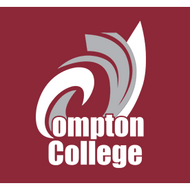The OER Starter Kit for Program Managers
(View Complete Item Description)Short Description: The OER Starter Kit for Program Managers was created to bring attention to the work that is involved in building and managing an OER program, from learning about open educational practices and soliciting team members to collecting and reporting data on your program’s outcomes. Regardless of your program's scope and your own experience with OER, we hope that the Starter Kit for Program Managers will have some tips to help you along your way. Join the community of practice! Long Description: The OER Starter Kit for Program Managers was created to bring attention to the work that is involved in building and managing an OER program, from learning about open educational practices and soliciting team members to collecting and reporting data on your program’s outcomes. Regardless of your program’s scope and your own experience with OER, we hope that the Starter Kit for Program Managers will have some tips to help you along your way. The OER Starter Kit for Program Managers contains seven parts: A Quick Guide to Open Education Building an OER Program Program Management Training and Professional Development Supporting OER Adoption Supporting Open Textbook Creation Collecting and Reporting Data Visit the project homepage to join the community of practice! Word Count: 107835 (Note: This resource's metadata has been created automatically by reformatting and/or combining the information that the author initially provided as part of a bulk import process.)
Material Type: Textbook











